|
BLOB [noun]: Big Learning Organization Bureaucracies What are tax-credit scholarships? And are they as nefarious as the Nebraska education establishment says they are? These are great questions in light of the fact that LB295 has advanced to the general file in 2018 and will be discussed on the floor of the Nebraska state legislature. Before we look at some of the fallacious rhetoric that has been put forth in the last few weeks, let’s look at the basics.
But there are many people in Nebraska who apparently don’t think our state should encourage private donors to give students more educational options. Here are some of the whoppers they're trotting out in order to prevent students from having more choices outside of the traditional public schools. “Tax-credit scholarships are tax breaks for the top 1%, handouts for the wealthy." In an attempt to leverage class warfare, this line of reasoning tries to make tax-credit scholarships look like a scheme (they even use the word “scheme”) to help the rich get richer. Until the tax credits are used up, anyone can apply. You don’t have to belong to the ever-changing, much-maligned top 1%, although the Buffetts could certainly apply if they wanted to. A tax credit simply reduces your overall tax liabilities. It doesn’t “give” you anything, so it can’t be called a handout. Your money either goes to the state along with the rest of your taxes, or it goes to a scholarship-granting organization. Either way, the taxpayer doesn’t get any sort of handout and doesn’t even get to keep any more of his or her money. We don’t hear anyone up in arms over the “1%” receiving handouts in the form of other Nebraska state tax credits such as the Microenterprise Tax Credit for small businesses in distressed areas, the Nebraska Historic Tax Credit for improvements on older homes, and the Nebraska Research and Development Act for businesses engaging in research. Perhaps the BLOB thinks business owners and old houses are more worthy of our attention and resources than children and their educations. More likely, however, they simply want to keep all of the state’s children in their monopoly, even if the monopoly isn’t effectively educating every child. “But tax-credit scholarships don’t help special needs students.” This is a red herring. There is nothing in the law that says special needs students are exempt from these scholarships. In fact, some tax-credit scholarship programs (GSNS in Georgia, the South Carolina Educational Credit for Exceptional Needs Children, and Gardiner Scholarship in Florida) are designed specifically for special needs students. It’s not realistic to expect the local public schools to be prepared and able to handle every special need; in fact, more Omaha special needs students might be able to attend the Madonna School for Exceptional Children and other similar private schools if they simply had scholarships to do so--the Madonna School already helps to educate some public school children whose needs are not met at their neighborhood public schools. Some private schools are especially adept at educating special needs students. Parents of special needs children know that the more options they have, the more likely they are to find the best fit for their kids. "Public money should not be used for private schools!” This is simply a misunderstanding of the law. With tax-credit scholarships, private donors give to scholarship-granting organizations, which in turn give the money to K-12 students to attend private schools of their choice. The public taxpayer funds collected for K-12 education are left untouched. With fewer children enrolled in the public schools, however, Nebraska taxpayers would save money, and this is very important given the fact that Nebraskans pay more in taxes than nearly everyone else in the country. In Florida, tax-credit scholarships save the state $1.49 for every $1 in lost revenue. Georgia’s tax-credit scholarships have saved the state between $12 million and $85 million. Michael Q. McShane puts it this way: “Fiscally, tax credit scholarships can be a win–win–win: a win for families who get financial support to choose the best option for their child’s education; a win for the state, which can provide these options at an extremely reasonable cost; and a win for local districts who can have more resources to devote to the children who choose to stay in their local public school.” “This is just an effort to save private schools. They need this to survive.” This argument does more to shine a light on the public school establishment’s thinking than it does on the school choice movement. The current public school model depends on taxes for its increased spending and large capital building projects. That’s why the establishment spends millions of dollars on campaigns to reassure the public that our public school systems are beyond reproach and don’t need improvements.
Private schools already exist in a landscape of competition. That’s why they’re able to educate students for much less than the public schools do. Competition breeds efficiency and improved outcomes. These scholarships are not about propping up a school system. Students can use their scholarships at any of the hundreds of Nebraska private schools they want to. If anything, competition among the private schools will increase, and that’s a good thing for parents and students. Listen carefully to the rhetoric around tax-credit scholarships. It’s easy to tell which people are concerned about students and which ones are concerned about the monopoly. As you can see from the examples above, the people opposing tax-credit scholarships rarely mention students or education. They’re too busy concerning themselves with class warfare, money, and control. If they really cared about the academic success of each and every child, wouldn’t they want all children--even those with no financial resources--to have every opportunity? And if not, why?
0 Comments
The organizations with the most influence over K-12 public education in Nebraska have declared social justice to be more important than education. Skeptical? Here is the mission statement of the Sherwood Foundation, which funds the omnipresent Nebraska Loves Public Schools: “The Sherwood Foundation promotes equity through social justice initiatives enhancing the quality of life in Nebraska.” The Strategic Planning Committee for the NSEA (Nebraska’s state teachers’ union) recently announced their preliminary goals, and the first one on the list is, “NSEA will advance a culture of social justice by improving educational opportunities for ALL students and building respect for the worth, dignity and equality of our students, our profession and public education.” The Lincoln Public Schools websites features Social Justice Artwork, Social Justice Themed Research, and numerous links to speakers and workshops about social justice. Is “social justice” just a popular catchphrase? Is it really more important than academic success, as these organizations hint that it might be? What is social justice? Here’s a dictionary definition: It sounds fine on the surface, but let’s think about it. In order for wealth, opportunities, and privileges to be distributed in a society, there has to be a person or a ruling class to do the distributing. Someone—or a group of people—must decide who gets what. In other words, social justice is the advocacy of authoritarianism. Why would the key players in a public school system place the advocacy of authoritarianism above academic achievement? And what are the long-term consequences of doing so? The “advancement of social justice” that the teachers’ union is so keen on seems to be working. A freshman English class at Lincoln High School recently read Animal Farm, and somehow, some students came away from the experience “identifying as Communist.” It’s not surprising that groups like the NSEA and Nebraska Loves Public Schools want to teach our youth that an authoritarian system is best. After all, these groups behave like authoritarians. For example, the Nebraska public school system works like a monopoly—it doesn’t have any competition from vouchers, charter schools, or tax-credit scholarships. And yet, Nebraska Loves Public Schools is pouring millions of dollars into a campaign advertising our taxpayer-funded, government-run public schools. Why? It’s the same thing totalitarian dictatorships do to keep their people from uprising; they simply have to convince them that they truly want the only option available to them. And what about the NSEA and the LEA (Lincoln Education Association)? The LEA’s motto is “One Message. Many Voices.” Besides being very creepy, this motto strips its members of individuality. They must walk lock-step with the union, just as these organizations want your children to walk lock-step with their social justice agenda. Authoritarianism never changes. The above propaganda poster encourages all workers to choose the Soviets. One message. Many voices.
What are the long-term consequences of embracing the authoritarian social justice agenda instead of embracing true academics? The Lincoln Education Association gives it to us straight: One message. Many voices. But who gets to pick the singular message? And how brave will your children have to be to attempt to deliver a different message of their own? Without a solid academic education, will a different message even occur to them? This is one of the many reasons school choice matters. Parents want their children to be prepared for as many opportunities as possible, and solid skills in reading, writing, math, science, history, and languages prepare them. Would you like your child to be a critical thinker as an adult? Would you like her to make decisions for herself instead of simply submitting to the propaganda she sees on billboards, on TV, on her colleagues' t-shirts, and even at the movie theaters where she's paid $12 for hard-earned entertainment? (These are some of the places where Nebraska Loves Public Schools has paid for placement of their propaganda.) If so, choose a school that places academics above social justice. And if this isn't currently an option for you, get on the phone and call your state legislator. Our state legislators are the ones who have the power to make school choice legal in Nebraska. Most other parents in the country have the option to send their children to tuition-free schools that place academics above social justice. Why not Nebraska? If these organizations are really concerned about justice, and if they want to improve "educational opportunities for ALL students," then they will support school choice. They will want minority and low-income students to have the same opportunities as the wealthiest children in Nebraska. But they don't want that. And our sad statistics reflect their wishes. That's why our achievement gap is one of the worst in the country. You can see in this report, that our 8th graders have a larger black-white achievement gap in mathematics than the 8th graders in every other state in the country. And the current best solution for decreasing the achievement gap--charter schools--has been vehemently denounced by our states' teachers' unions and districts. Ostensibly, opposing school choice is the very reason for the existence of Nebraska Loves Public Schools. Their propaganda is destroying the chances for academic success of thousands of minority children in Nebraska. So clearly, social justice has nothing to do with improving educational opportunities for ALL students. In fact, if the 8th grade math statistics mean anything, social justice is anything but just. What roles should parents play in the K-12 educations of their children? According to some Nebraska organizations, parents should be willing students. They should allow government employees to come into their homes when their children are infants so they can be taught how to raise their children. Parents should order “I Love Public School” t-shirts (which are now available in infant sizes, according to the @NElovesPS Twitter feed) and wear them with pride. They should be cheerleaders for a government organization that is constantly trying to extend its reach and acquire more power. When children are old enough to attend the local district public school, parents should join the PTA. As members of the PTA, parents can raise more money for the schools (because nearly $12,000 per year per student just isn’t enough), jot down the weights of children during health checks, and hand bean bags to students at the fall carnival. In other words, parents can be involved in activities that don’t have anything to do with academics. There’s nothing wrong with parents helping with health checks or working booths at carnivals--in fact, these can be great ways to get to know other parents and teachers at the school. But when parents are led to believe that their job as parents is to take direction from an organization that profits from their children’s involvement, kids are put at risk. And when parents have no other choices for their children's educations, they lose interest in the primary reason their children attend school. In this blog post we’ll do two things. First, we’ll look at some of the ad campaign messaging being directed at Nebraska parents about their roles in K-12 education. Second, we’ll talk about how school choice puts parents back in control and encourages greater parental involvement. The Insulting NElovesPS Ad CampaignLet’s start with this one. NElovesPS reminds parents that “little ones don’t come with a set of instructions when they’re born.” How often have parents lamented this fact. When parents repeat this common phrase, they often talk about how different their children are. You finally figure out how to motivate your oldest child to eat broccoli and then you realize that the same methods don’t work at all with her younger brother. But that doesn’t seem to be what NElovesPS is talking about here. They suggest that if you’re unclear about how to be a good parent (starting “the moment a child is born”), you should ask Crete Public Schools for help. There are undoubtedly some very wise and good people working for Crete Public Schools. But the suggestion that they know what’s best for every child and that they know better than their parents is just silly (and insulting to the parents). Here’s another: “The most promising approach to #earlyed is one that involves parents directly.” And don't forget: "Most parents want to be great parents." They want to, but they just don't have what it takes. We have two parents, a baby, and a woman showing them a picture on an iPad. It appears that the woman with the iPad is a visitor to the home, but she’s the expert. You can tell. From the tone of this advertisement, it’s pretty clear that the woman in the blue shirt is the boss. She has the authority and the state-funded technology. She has the plan for the baby’s life. The parents are submissive to her because they understand that things will go best for the baby if they’re “involved” but not “in charge.” Is this assumption really true? Does the lady in blue really know what’s best? Are her own children in daycare while she's telling Henry's parents how to raise him? Does she know that little Henry started sitting up at 5 months and that he’s allergic to soy? Does she know that his grandfather had dyslexia? Does she know that Henry responds especially well to music but hates the sound of the blender? Of course she doesn’t. It’s not that the lady in blue is deficient in any way. She’s just not his mother, so there are a million things she doesn’t know about this child. And yet, because of credentials offered to her, she assumes a position of authority over fellow citizens. Here’s little Henry again with his obviously loving mother. NElovesPS reminds us that “Parents are one of the most critical factors.” They don’t want parents to feel cut out of the equation completely (that’s currently against the law), but they do want to remind parents that they’re not the only factor. It’s a little unclear from this ad what the factors are about. Are we talking about factors of academic success? Factors of pliability? Factors of conformity to the current education system? Not sure. But one message from this ad is clear: if you’re a loving mother like Henry’s, you’ll get on board with the whole Nebraska early childhood plan. It’s a clever way to extend power and influence. If the public school system waits to start educating children until they're 5 or 6 years old, the system will have missed out on a lot of opportunity. Some of the kids’ ideas and habits will already be formed by kindergarten. Also, they’ll miss out on a lot of money and political power. This may sound overly cynical, but ad campaigns like this one, which attempt to nudge parents away from their sacred duties to raise their children, deserve extreme skepticism. It’s worth noting that NElovesPS is funded by the Sherwood Foundation, Susan Buffett’s organization that “promotes equity through social justice initiatives enhancing the quality of life in Nebraska.” And the Buffett Early Childhood Institute is “working to develop a comprehensive plan for expanding and strengthening the state’s early childhood workforce.” What better way to create more jobs in early childhood education than to hire people like the lady in blue to go into people’s homes and tell them how to raise their children? School Choice is the Answer to These ProblemsThe advertisements in the above 2 Twitter posts address one problem: educational inequality. NElovesPS is absolutely right that the same educational opportunities should be there for every child. The way to make that possible is to invite real, meaningful school choice to Nebraska.
When parents have the choice between several different schools to send their children to, several important things happen. 1. Parents get involved. Most parents in Nebraska can't send their kids to private school or take the time to homeschool. They're left with the district public schools. Advocates of the status quo frequently remind us that these parents can send their children to "any public school they want." This is true. It's like telling parents they can eat at any McDonald's in town that they can reasonably drive to every day. Some McDonald's have a playland, and some might offer pumpkin milkshakes at Thanksgiving, but they're virtually the same. Give parents real choices, however, and their interest is piqued. Suddenly, parents in the park are discussing the differences between Saxon, Houghton Mifflin, and Singapore math because the accessible schools in the area have chosen different math curricula. They start researching their different options on the internet and weighing the options against their children's strengths, weaknesses, and interests. They can afford these schools, either because they're tuition-free public charter schools or because their children have acquired Opportunity Scholarships or funds from an Education Savings Account to attend private school (there are currently bills in the Nebraska legislature for ESAs, tax-credit scholarships, and public charter schools). Here's another way to look at it: Are you more interested in dinner when you get to choose from a menu or when you simply have to eat what's brought to you? Parents who previously couldn't muster the interest in their no-choice situation are suddenly very interested when they get to make meaningful educational choices--choices that chart their kids' futures instead of just boost the morale of the local public school. Do you think the parents in the NElovesPS ads would feel more empowered by going out and finding the best fit for little Henry? Of course they would! When parents are empowered to choose because there are several cost-free options available, they focus on what's important. For most parents, academic success is most important. For the Sherwood Foundation, social justice is their goal. 2. All Schools Improve When all parents (even low-income parents) have quality, affordable (free) choices available, everything turns upside down--and that's why the Nebraska education establishment is fighting school choice with such vehemence. Instead of coming into your home to tell you "how to be a great parent," public school employees would be trying to find out what you want so they can provide it. If they can't figure out how to provide what parents want, they will lose students (and the funding that accompanies those students). As mentioned previously, most parents place academic success as their highest priority. If the local district school wants to compete in a school choice environment, it will have to muffle its social justice agenda and focus on math, writing, reading, science, and history. NElovesPS is absolutely right: "What you want for your child should be there for every child." Just ask the members of the LPS School Board. Thanks to ever-expanding educational technology, more and more options are becoming available to students in Nebraska even without legislative help, although we're still one of the few states in the U.S. without any meaningful school choice, especially for children in low-income households. In order to reach those most at risk, parents need access to quality options. They don't need to be told that despite their good intentions they're inadequate. It's simply not true. Why would any organization that genuinely cares about children insult their parents or question the parents' authority? 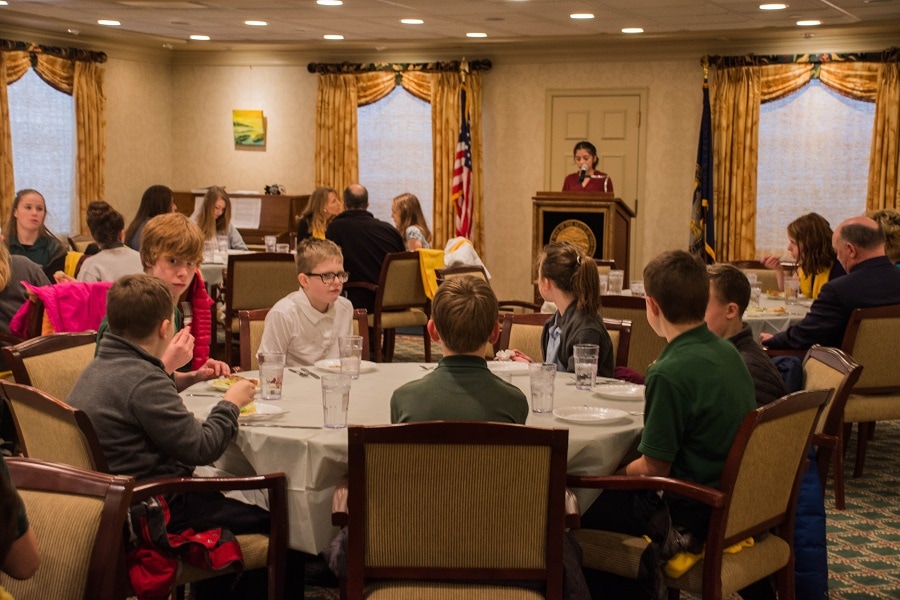 Stella Criswell, 8th grader from Lincoln Christian School, shares her essay, "A Student's School Choice." Stella Criswell, 8th grader from Lincoln Christian School, shares her essay, "A Student's School Choice." Congratulations to the winners of the 2017 Nebraska School Choice Week Essay Contest! Abby Herrick - "School with a Purpose" Sophie Timmerman - "Nebraska School Choice Week 2017" Stella Criswell - "A Student's School Choice" The following are excerpts from some of the many insightful essays contributed to the contest: "Living Word focuses us on understanding what we learn and enjoying it instead of reading study guides and not knowing how to apply it to real life. I feel that I am mastering mathematics for the first time. Although having a purpose to learn is important, being motivated to be inspired is also important." -Abby H. "I believe my school, Lincoln Christian, is the best choice for me for four reasons. First of all, the curriculum is based on Christian values. This affirms my faith as I grow older and instills values in me that my family and I want in my life. I feel strongly that every single family who wants this kind of education for their child should be able to attain it." -Stella C. "All kids should have the freedom to choose their school according to their needs and rate of learning. A child should never be forced to go to a school they feel uncomfortable going to, especially if the school doesn't fit the necessities the child has. All kids should be able to learn at their own rate so they understand what they learn and so they can have a better, brighter future." -Sophie T. "I am thankful that my family made the best choice for me. I am in the best place I can be and I have developed my strengths, improved my weaknesses, and gained a well-rounded life style. This is the greatest place for me to learn and I am thankful that I got the choice to come to this school. I think that everyone should have the choice to decide where to get an education that best fits them." -Grace S. "My school only has thirty-two pupils and two teachers including the preschoolers who have their own teacher. Other schools have about twenty to thirty kids per teacher. Also at my school we have five hours a day so the teachers can spend about 10 minutes per child depending on the day or absences so that we can learn at our own pace. Since we do not have seven hours a day like most schools we get to spend more time with family which is very important." -Isabelle M. "Our principal, Sister Anne Joelle, said our buddy project, which pairs older grades with younger grades to promote school unity, is a great community builder for our school. Sister Anne Joelle said that the thing she loves most about her job is working with the kids and helpful staff, loving teachers, and supportive parents. When I ask around the school who the kids like the best for teachers, the answers are completely mixed. They are given so much support by the school family. We love them very much." -Connor T. "It is important for everyone to have the ability to choose their own school because if you are at a school you prefer, you are more likely to enjoy school. Having multiple options available for schools will also make those schools better. 'Choice creates the conditions necessary to spur schools to implement reforms and strategies that work--or risk losing students and their money.'" -Clare B. "My final reason this school benefits me is that it gives me opportunities to experience the world first hand outside the classroom. We have given back to our community by donating our time at the local food bank, visited a working farm, and recently toured a new building being constructed. This has definitely opened my eyes to different way to choose life paths. By learning to give of myself, I have gained the tools to move forward with my educational path." -Abby H. "As students and teachers we work hard to fix a problem. We once spent a whole class period making a way to do better at listening. I know I can count on them whenever I need their help." -Jared C. "Without school choice, many students would be forced to go to school in a learning environment that does not suit them and that does not make them learn to the best of their abilities, but with the freedom of school choice, so much more is possible, and so many more kids can get the education that they want. So, as Malala Yousafzai said, 'Let us pick up our books and our pencils. They are our most powerful weapon.'" -Lucia R. "...I get the opportunity to work with students of all ages. Using this technique helps the oldest students build leadership skills when helping the younger students. I specifically have grown in problem solving, and while the older students are learning, the younger students can learn too. When the older students are teaching, the younger students pick up on facts at the older students' level. So it's a win win for everyone!" -Autumn B. "Our school family is the best because we love each other and see Christ in everyone. One example is that when our band teacher, Mrs. Karen Murphy, died on January 13, 2017, our school family responded with love and sympathy. For instance, special prayers were said for her the morning of her death. Each class has started a journal of memories that will be compiled and given to the family." -Connor T. "Some kids need more one-on-one time. I'm good at reading because I have had a lot of one-on-one time with my teacher. She has explained language in a way I can understand well and it has improved my skills a lot. Since there are less kids, we each have more teacher time. She has the time to get to all of us." -Olivia L. "Sometimes people don't want the kind of school their taxes pay for. If you're paying taxes you should be able to decide what the money goes to. I'm thankful my family made the best choice for my education even though their tax money can't help pay for it. My school is definitely the best choice for me!" -Liberty S. "At our school, we learn how to clean up ourselves because if we don't clean up it looks like a tornado hit half of our school. On the other hand, another fun experience is that we get to cook because there is a kitchen in our school. We have made Brazilian hot chocolate and frosted our own cookie shaped as Antarctica (we were learning about glaciers, northern lights, icebergs, and ice shelfs, so we used M&Ms and chocolate chips to make them). It was really fun! HELLO, those seem like life skills to me." -Avery L. "I go to St.Teresa's Catholic School...and I get to learn religion, which I would not be able to learn if I went to public school. The freedom of choice allows me to go to the school of my choice that works best for me, and for other kids, the school that works best for them." -Lucia R. Thank you to all the students who entered the 2017 Nebraska School Choice Week Essay Contest!
When LPS school board member Connie Duncan was raising her children, she did what all good parents do: she sought out the best education for her children, understanding that her children had individual needs and goals. Margaret Reist wrote the following for the Lincoln Journal Star:
"Her boys attended Sheridan Elementary, then Lincoln Lutheran for junior high. One of them transferred to East for high school, playing baseball and attending the LPS Entrepreneurship Focus Program. Her other son graduated from Lincoln Lutheran, although he also attended the focus program with his brother. Duncan said they visited many schools, always looking for the one that was the best fit—and in middle school that was Lincoln Lutheran." Fortunately, the Duncans had the means to afford the schools that were “the best fits” for their children. They recognized that even children within the same family might need different educational programs in order to thrive. But under our current education system, only a select few are able to make such choices. Our current system distinguishes between the haves and have-nots when it comes to education. For most Lincoln parents, choices are very limited. Yes, they may be able to switch to a different LPS school than the one they’re assigned to, but what if a traditional public school isn’t the best fit, as was the case for LPS board members Duncan and Schulte at times? “There’s homeschool,” anti-choicers say. And yes, nearly 1,300 students in Lancaster County registered as homeschoolers for the 2015/2016 school year. But homeschool requires resources that many Lincoln families don’t have: a parent home during the day and the financial resources to buy curriculum and tuition to co-ops or online classes. Is there a way for all children in Lincoln to have access to the same kinds of opportunities as the children of LPS school board members? All across the country, state legislators have been enacting school choice legislation that opens education opportunities to all children, not just those with enough money to afford private school tuition on top of their property taxes that fund district public schools. Here are some types of school choice programs that are successfully helping students to find their “best fit.” Tax-Credit Scholarships These scholarships allow taxpayers to receive tax credits when they donate to non-profits that provide K-12 private school scholarships. These programs are often geared toward low-income students or students in failing schools. Tax-credit scholarship programs are currently operating in 17 states. Florida’s tax-credit scholarship program alone has 97,826 participating students (as of Fall 2016). Charter Schools Charter schools are independently run public schools that are exempt from many rules and regulations in exchange for increased accountability. They cannot turn students away, must use a lottery system for admission if there is a waiting list, and do not charge tuition. There are an estimated 6,800 charter schools in 42 states and the District of Columbia, but we don't yet have a single one in Nebraska. Education Savings Accounts (ESAs) ESAs allow parents to withdraw their children from public schools and receive a deposit of public funds into government-authorized savings accounts. The funds may be used for private school tuition, online learning programs, tutoring, community college tuition, and other approved learning services and materials. The funds can only be used for approved educational expenses. There are currently over 10,000 students in the U.S. who are participating in ESA programs. School Vouchers Vouchers allow parents to use all or part of the public funding set aside for their children’s education to pay for partial or full tuition at a private school, including both religious and non-religious options. As of November 2016, 14 states plus the District of Columbia have school voucher programs, and most students who receive vouchers are students from low-income households, students attending failing schools, students with disabilities, and students living in rural areas. School Choice for Nebraska In the coming weeks, the Nebraska legislature will be discussing several school choice measures: LB295 (Tax-Credit Scholarships) LB608 (School Vouchers) LB630 (Public Charter Schools) LB118 (Education Savings Accounts) This legislation could bring exciting opportunities to all of Lincoln’s students and families, the kinds of opportunities that have previously only been available to a few. Education will blossom in our town like never before when all students can find “the best fit." If members of the LPS school board are justified in finding "the best fit" for their own children, all of us have the right and responsibility to do the same. We know our children better than anyone else; it's up to us to find that "best fit." Contact your state senator to voice your support for school choice legislation for Nebraska! School choice allows for public education funds to follow students to the schools or education resources that best fit their individual needs, and there are lots of different options: public school, private school, home school, charter school, or any other learning environment that parents choose for their children.
The organizers of Nebraska School Choice Week invite students in Lincoln who are currently in grades 4 through 8 to consider why their school is the best choice for them and to enter the 2017 Nebraska School Choice Week Essay Contest. Topic Using your own educational experiences, discuss why your school is the best choice for you. Consider your own strengths, challenges, and personal situation, and think about why your school suits you. Also, think about why it’s important for all students to have the ability to choose their school. Guidelines Students may submit 1 essay on the topic above. Word limit: 500 Students should use at least two cited sources from newspapers, magazines, the Internet, personal interviews, or books. Citations and the bibliography are not included in the word count. Eligibility The essay contest is open to students in Lincoln, Nebraska, who are currently in grades 4 through 8, attending public, private, parochial, online, home schools, or any other school choice option. Submission Send your essay contest entry as a Microsoft Word attachment to an email: [email protected]. Entries must be submitted via email by midnight on January 20, 2017. Judging Criteria Essays will be disqualified if they do not address the topic, if they’re received after the deadline, or if they’re not the student’s original work. Essays will also be judged on the following criteria: · Originality of thought · Writing style · Clarity Prizes Winners of the Nebraska School Choice Week Essay Contest will be invited to a luncheon at the Nebraska Governor's Residence on January 26, 2017, where they will receive a certificate. Lincoln Public School District has landed in hot water once again in the wake of the district's admonition against flying the American flag from vehicles in the Career Academy parking lot. As in the aftermath of the Purple Penguins episode, people from across the country are scratching their heads: "we thought Nebraska was supposed to be a rational sort of place." Nebraska is a rational sort of place, but unlike most of the rest of the country, Nebraska doesn't have checks and balances built into its school system. Nebraska doesn't have school choice. What Does School Choice Have to Do With It? There's no competition in the public school system in Lincoln, Nebraska. If you can't afford to homeschool or pay private school tuition, you send your children to Lincoln Public Schools. LPS is a monopoly, so it can get away with trampling on students' rights, wasting valuable teacher training time on unproven gender theories, and swaying students' political opinions, and there are very few repercussions for this behavior from our administrators. Yes, occasionally, they end up on the front page of Fox News, but they don't lose many students. That's because there's nowhere else for the students to go. If there were charter schools in Nebraska, however, LPS would begin reforming immediately. Charter schools are public schools: students don't have to pay tuition to attend them, and there are no admission requirements (anyone can attend). If there were a charter school in Lincoln that focused exclusively on academic achievement (no purple penguins or flag shaming), there would probably be a few parents who would switch their kids over to the charter school. The taxpayer money that supports the kids' educations would follow the kids to the charter school and LPS would receive less taxpayer money. It wouldn't take long before LPS would realize that they need to focus less on social justice and more on academics. In this way, school choice would not only help the kids who switch to charter schools or private schools (through tax-credit scholarships), but it would also help the tens of thousands of students who attend LPS schools. Want to Keep Lincoln, Nebraska, Out of the News? Demand School Choice. Have you wondered why LPS keeps making appearances in the national news? There are no checks and balances in our education system in Nebraska. Just as we have checks and balances in our federal government, most states have checks and balances in their school systems (charter schools, Education Savings Accounts, tax-credit scholarships). Without the checks and balances inherent in school choice, districts like LPS can get out of control. Insulated from impactful feedback like student transfers to non-district schools, LPS is free to pursue any agenda it chooses. School choice improves academic outcomes for one simple reason: parents value student achievement over other priorities. When schools know that student achievement is the parents' number one priority, they focus heavily on student achievement. They try to avoid influencing students politically in one direction or the other because this may offend some parents on either side of the political spectrum, and when you offend parents, they may withdraw their students and put them in another school where you can't control their children's education funds. Thus, schools become more moderate and more focused on education. How Can We Get School Choice? Currently, 43 states and the District of Columbia have charter schools (public schools that have the freedom to operate outside of district and school board constraints). The teachers unions and organizations like Nebraska Loves Public Schools have worked hard to misinform Nebraskans about charter schools because they don't want to lose control over your tax dollars. In states that have had school choice for decades, teachers union membership is way down because charter schools don't usually negotiate contracts with unions. The NSEA and LEA certainly don't want to see their membership drop. If they do, they'll lose the amazing political sway they currently enjoy in Nebraska politics. From the recent election we've learned, however, that money isn't everything in politics. We the people elect representatives to represent us. If we want the checks and balances that school choice provides, we need to let our state legislators know. We need to tell them that enough is enough. We don't want a monopoly that uses our tax dollars to mislead our children. We want our children to gain solid academic skills that will give them opportunity in the future. If our legislators ignore us and continue to do the unions' bidding in order to receive campaign contributions, we simply won't elect them again. School choice laws are decided by the state legislature. Contact your state senator and tell him or her that you want to see school choice enacted in Nebraska. Learn about Education Savings Accounts, tax-credit scholarships, and charter schools. Tell your friends and acquaintances about the power school choice has to improve our schools and keep LPS in check. Most of the rest of the country has it. Why not Nebraska? Learn more by attending the Nebraska School Choice Week Rally on Thursday, January 26, 2017, at the Nebraska State Capitol Building. More than 800 students came last year. This year promises to be much bigger! Everyone is invited. You won't want to miss it! Like the Nebraska School Choice Week Facebook page to stay informed of all the festivities.
Background: At the end of September, three UNL football players knelt during the national anthem at the Northwestern University football game in Illinois. Some members of the community felt that their actions were inappropriate for uniformed representatives of the school. Hank Bounds, president of the University of Nebraska system, defended the players, and both he and UNL Chancellor Ronnie Green received email messages from students, alums, Husker fans, military service members, attorneys, and more—some in support of the players’ actions and some opposed to their actions. One of the email messages was from LPS superintendent Steve Joel.
It’s hard to read an LPS-focused Journal Star article, an LPS tweet, or a district PR piece without coming across the phrase “All Means All.” According to the context surrounding this oft-repeated mantra, we’re led to believe that “All Means All” signifies that Lincoln Public Schools embraces inclusion, tolerance, and diversity. That’s why it’s so strange to hear the superintendent say things like this: “Thanks for your great leadership on this topic as many of us are hearing from the usual small minority who are detached from reality and what we try to teach young people.” This quote is a statement by Steve Joel, superintendent of Lincoln Public Schools, in response to University of Nebraska president’s statement supporting several University of Nebraska football players kneeling during the national anthem earlier in the football season. Presumably, Joel is using the phrase “usual small minority who are detached from reality” to refer to people in the community who think that students representing the university should show their respect to their nation and state when the national anthem is played. For the record, the same Omaha World-Herald article that includes Joel’s statement reports that “30 of 50 messages to University of Nebraska-Lincoln Chancellor Ronnie Green conveyed negative views of the players’ protest,” hardly the definition of a minority. But even if these people did represent a minority, even a very small minority, is that cause to insult them by saying they’re “detached from reality”? Does Joel think it’s acceptable to insult minority groups whose views differ from his own? Respect for Diversity It’s possible to show support for one group of people without disparaging another, and we’re sure LPS administrators like Steve Joel do this all the time. For example, it’s possible to tell a child at the science fair that you really like her bean plant science experiment without saying, “It’s much better than that loser’s volcano project over there.” Respect is not a zero-sum game. If you give respect to one group, that doesn’t mean you have to take respect away from another group. It’s possible to be respectful of people with many different opinions, views, value systems, and backgrounds. Instead of insulting people who disagreed with him, Joel could have said, “Thank you for your great leadership on this topic. I agree with you.” Such a statement is positive, allows him to exercise his freedom of speech, and doesn’t remind everyone in the community that “all means all” doesn’t mean what it sounds like it means. What Does “All Means All” Really Mean? If “All Means All” doesn’t really mean respect and tolerance for everyone, what does it mean? It’s hard to say, but Joel’s statement about the national anthem protests may give us a clue. He says that the “usual small minority” is “detached from…what we try to teach young people.” In other words, LPS is trying to teach young people the “right way” to think about issues, and there are people out there who don’t see things the same way Joel does. Therefore, “all means all” is not at all about diversity or tolerance or inclusion; it’s about conformity to a prescribed set of views. By the time kids get to LPS high school, they’ve learned their lessons on these issues pretty well. For example, they know it’s perfectly acceptable to jeer and yell “Bigots!” when the Young Republicans are introduced at a pep rally, but it’s not at all acceptable to treat the Feminist Club the same way. They know that if they talk about their pro-life views in class they will either be attacked by their fellow students (and maybe by their teachers) or shut down. They know it’s okay to mock certain religions but not others. None of this is inclusive or respectful or tolerant, but it happens on a regular basis at LPS. Conformity may have been an acceptable modus operandi in the past when Nebraska had a fairly homogeneous population. But the population in Lincoln today is quite diverse and becoming more so all the time. What do refugee students think when they begin attending school at LPS and realize that some of their own deeply held beliefs or values are “detached from reality”? School Choice and Tolerance The diverse citizens of Lincoln are spending a lot of money on Lincoln Public Schools. The public has hired this district to teach children to be academically prepared for adult life. It’s not up to the district to decide which values, beliefs, and views are worthy of respect and which are not. The truth is, public schools aren’t very good at teaching tolerance. In fact, research shows “private schools and school choice programs promote and advance good citizenship and democratic values." Private school students are more tolerant and have a larger sense of civic duty. You can look at the results of the research here. A 2014 study also shows that “greater exposure to homeschooling is associated with more political tolerance.” That’s one of the many reasons more and more people are embracing school choice. Kids shouldn’t have to go to a school where their beliefs and views are ridiculed and mocked or where they learn to mock the beliefs of others. There should be options for students to attend schools where diversity is respected and tolerance is embraced, where adults teach children that it’s possible to respect one person without putting another person down. 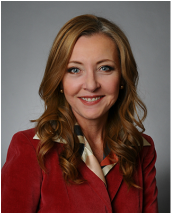 Dr. Vicki Alger Dr. Vicki Alger Earlier this month, Dr. Vicki Alger spoke about tax credit scholarships at the Platte Institute Legislative Summit. Twenty-one different tax credit scholarships currently operate across the country with participation rates ranging from less than 1% in New Hampshire to 15% in Florida. Tax credit scholarships are a form of school choice that allows individuals or businesses to receive a tax credit from state taxes against donations made to non-profit organizations that grant private school scholarships. This creates more options for students; if a student isn't doing well in a traditional public school, a scholarship makes it possible for her to attend a private school where she may have a better chance of success. Additionally, taxpayers benefit from tax credit scholarships because private donations help to fund education: the burden of educating K-12 students no longer rests exclusively on taxpayers. Making Education More Efficient The U.S. Department of Education publishes data on "instructional" spending, which averaged $6,500 per student during the 2010-2011 school year. Of all the states in the nation, Nebraska spent the most: $7,700 per year. But that doesn't mean Nebraska students learned the most. In fact, only 39% of disadvantaged eighth graders scored proficient or better in reading and math. Contrast this with the performance of Arizona's disadvantaged eighth graders who had 51% proficiency rates in reading and math. Arizona spent $4,200 per pupil on instruction. What's the difference? One of the biggest differences between Nebraska and Arizona is that parents in Arizona have parental-choice scholarship programs, and parents in Nebraska don't. Schools have to compete for students in Arizona, and this competition improves all schools, public and private alike. Nebraska state legislators are looking at tax credit scholarships, and fortunately, there are many existing programs in the country for them to examine. For example, Nevada's ESA program is universal and open to all parents while some programs are restricted to certain populations and demographics. Some people who oppose tax credit scholarships worry that people will abuse the system, but there are ways to reduce risk of abuse. In most programs, funds are disbursed quarterly after receipts and expense reports have been submitted by parents. If abuse occurs, those parents are simply dropped from the program and their children return to traditional public schools. Many thanks to the Platte Institute and Dr. Vicki Alger for helping us to understand the great potential of tax credit scholarships and how they could help students in Nebraska. You can read more about tax credit scholarships at the Friedman Foundation or at any of the state government websites that currently offer programs, like this one from Florida. Here is yet another case of a teachers union misinforming educators about school choice options. This graphic appears in the October issue of The Voice, the NSEA's monthly publication for its union members. One of the columns says "Supports For Profit/Charter Schools," which is confusing and misleading. Charter schools are public schools that are not tied to teachers unions and bureaucracies that limit their innovation and freedom. Because they're free from so much bureaucratic regulation, they tend to perform better than traditional public schools. Nebraska's teachers unions fight vehemently against charter schools because their membership will decline if charter schools are legalized. They know this because teachers union membership has declined in many of the 43 states and Washington D.C. where charter schools exist. They also don't want to have to compete with charter schools, which disproportionately rank high in school rankings. Teachers unions claim to help their members, but by fighting against school choice, they limit the kinds of opportunities that teachers in other states enjoy. For instance, the Denver Schools of Science and Technology charter schools consistently rank as some of the best places to work in the city of Denver.
Worst of all, the teachers union is limiting opportunity for Nebraska's students, especially students who are currently stuck in failing schools and have no other options. If charter schools were legal in Nebraska, parents could choose the best schools for their children and enjoy the kind of market competition they enjoy whenever they go out to eat or visit a doctor or shop for a car. In time, parents in Nebraska will have more options to help them create individualized educations for their individual children. Until then, check out the options created by ed tech firms, universities, and organizations created by school choice in the rest of the country. See if you can find resources to help you do what's best for your kids, even though we currently live in a no-choice state. |
|
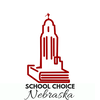



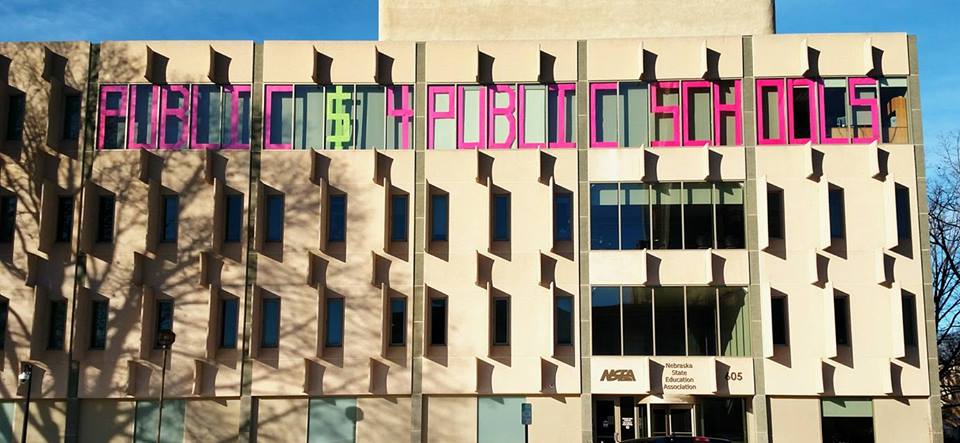
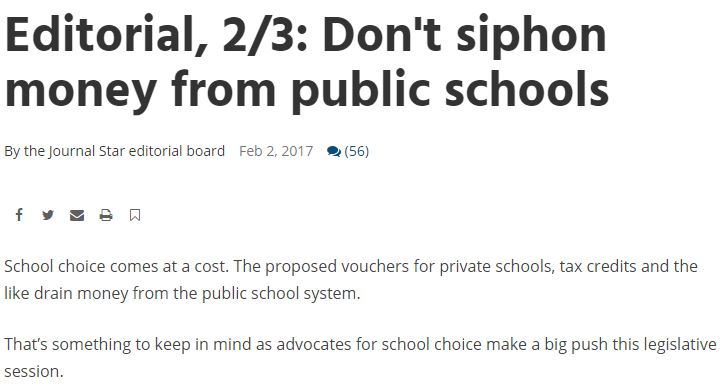

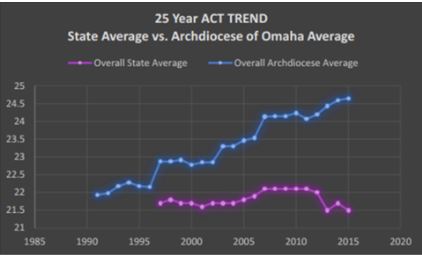
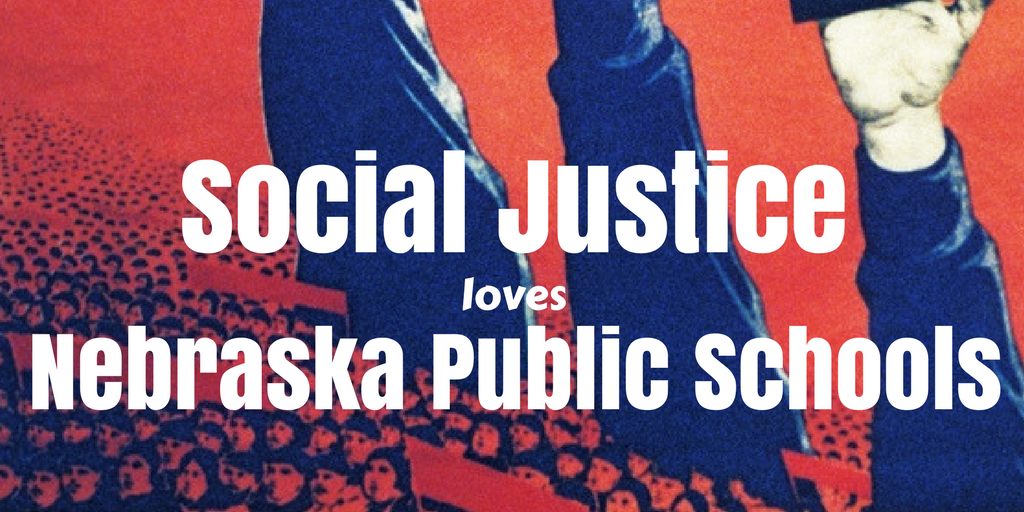

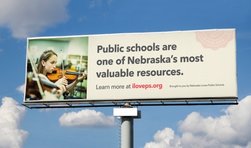
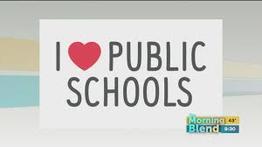

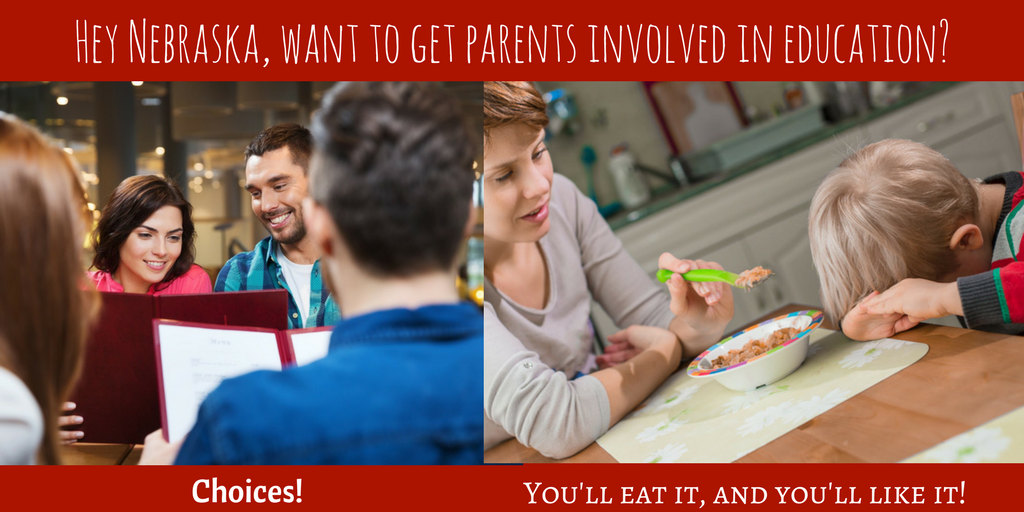
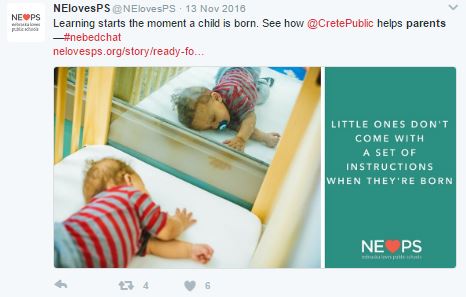
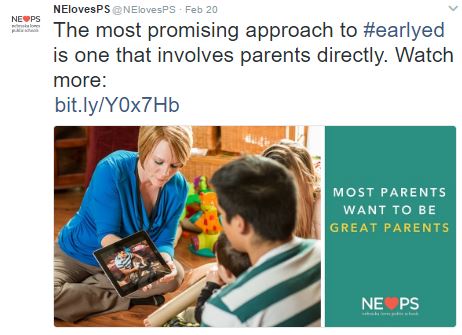
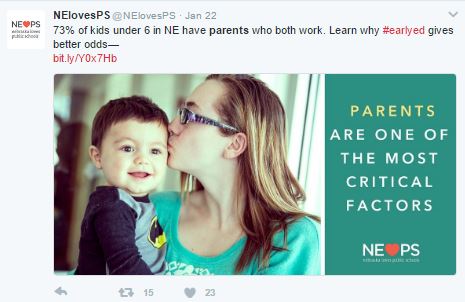
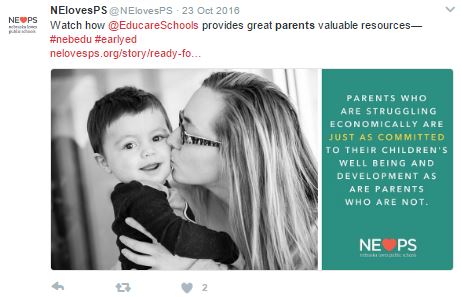
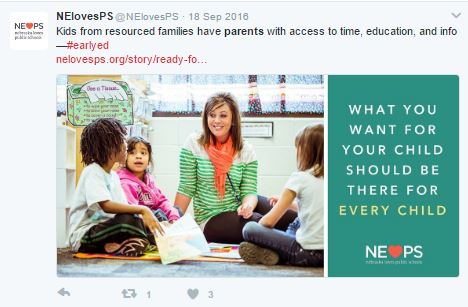

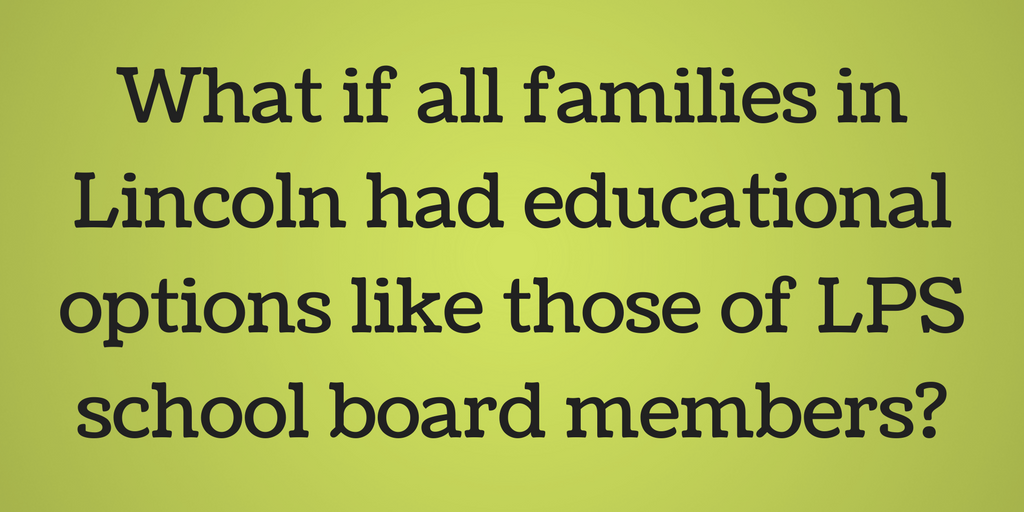
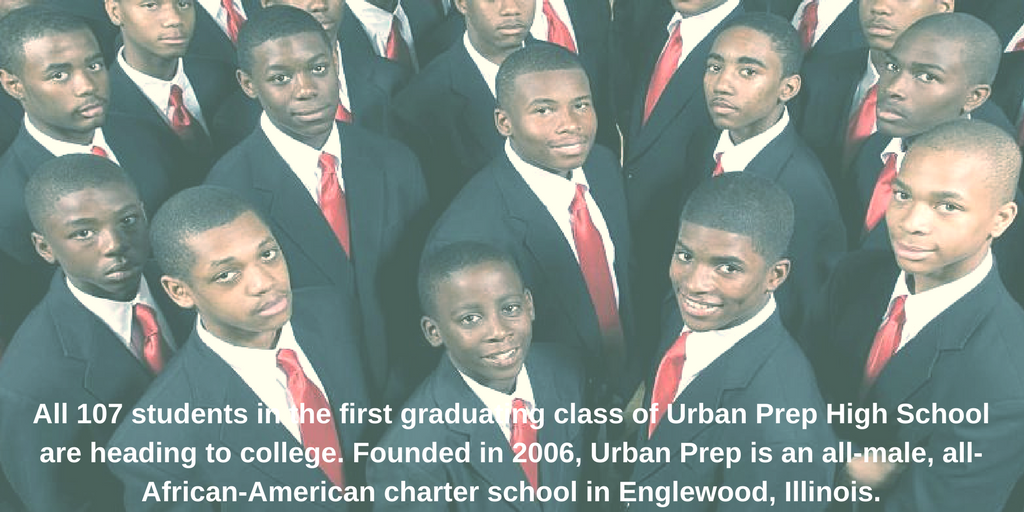
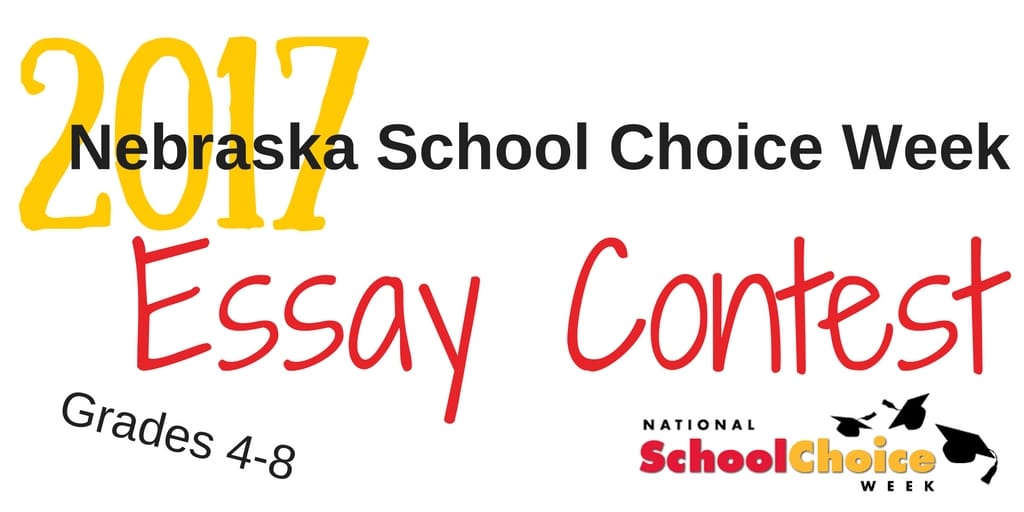
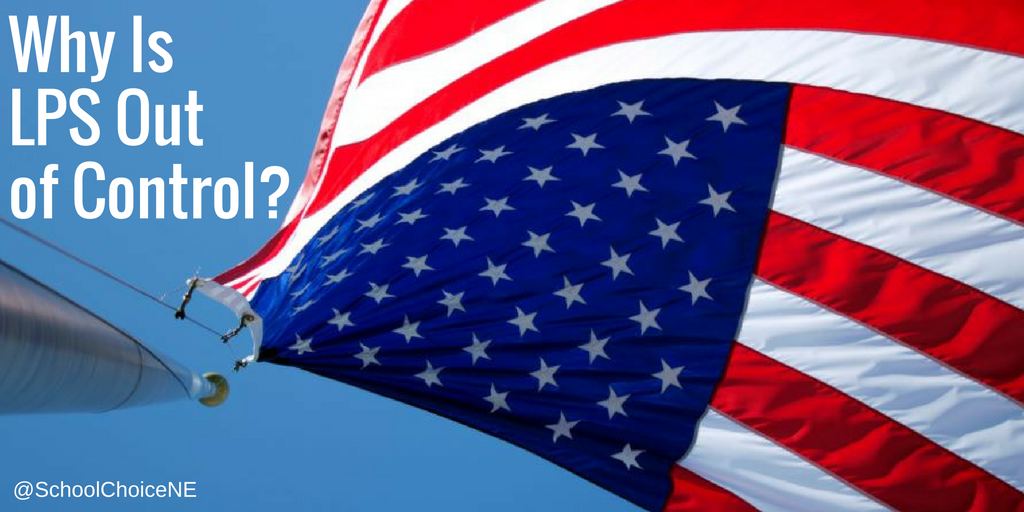
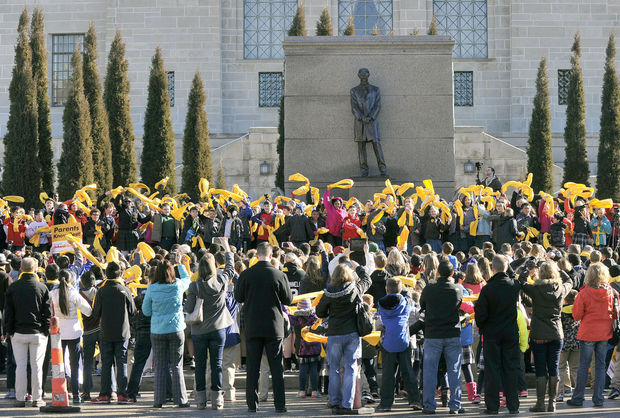
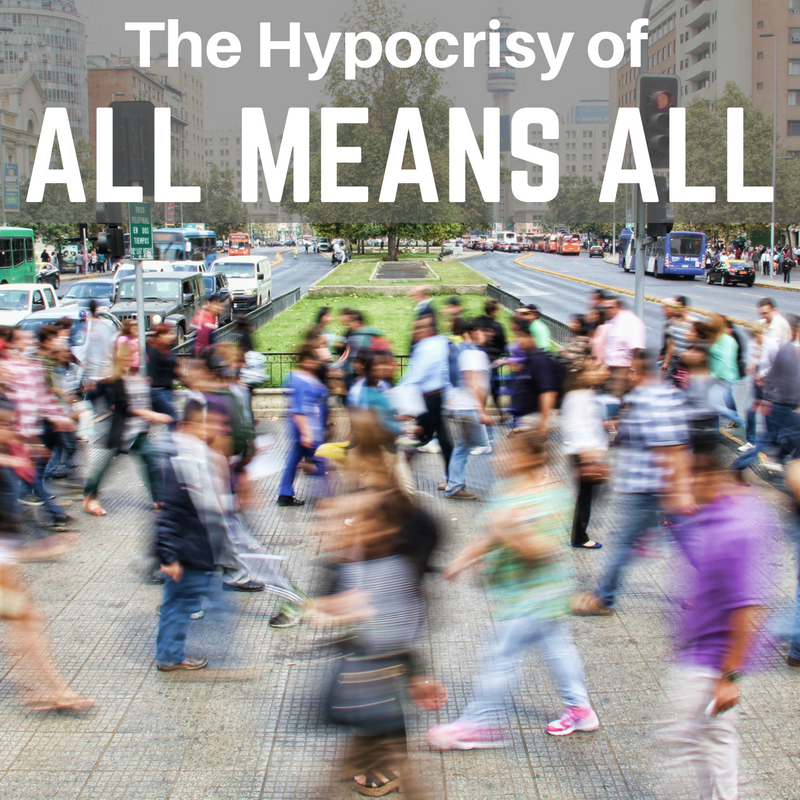
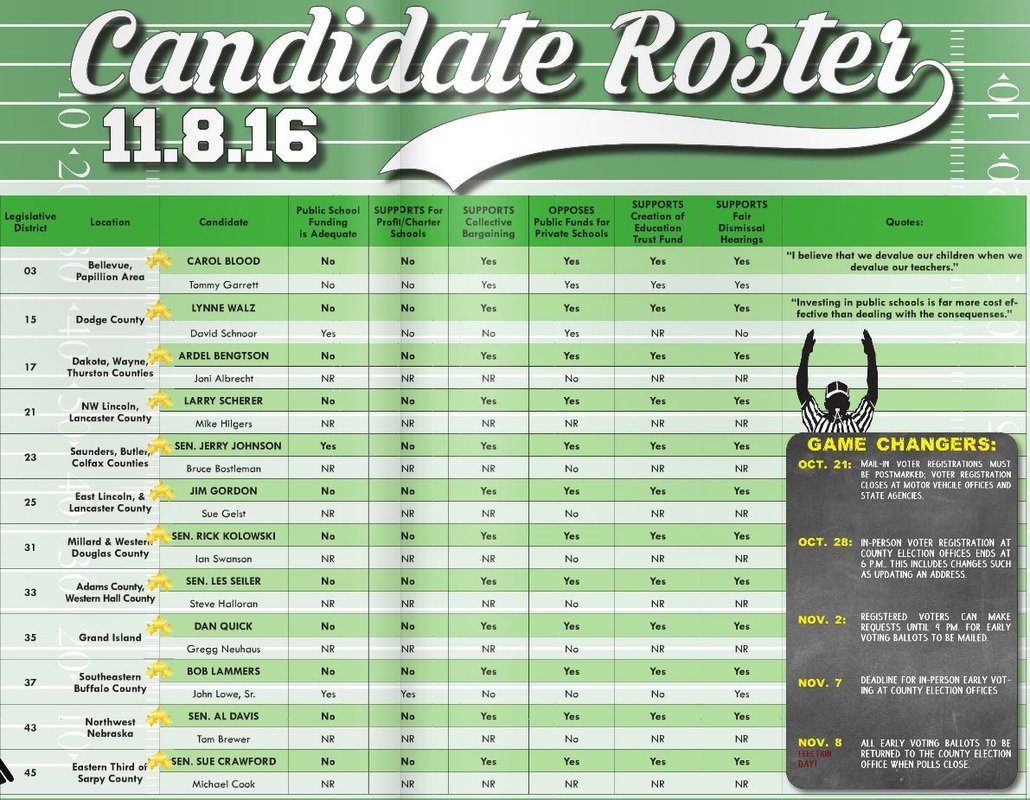
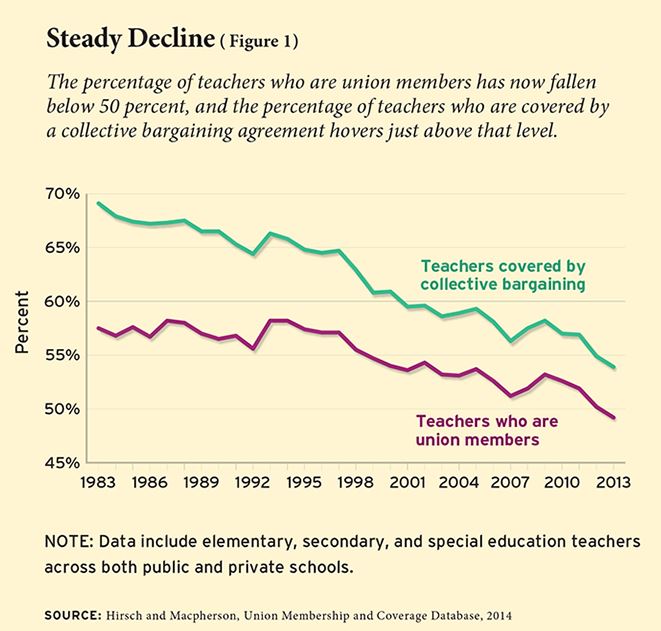
 RSS Feed
RSS Feed